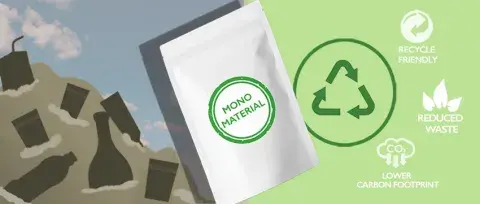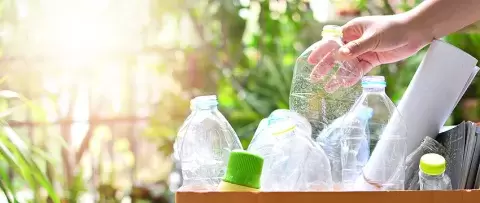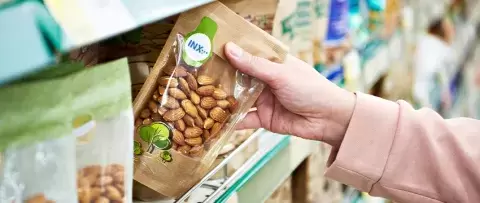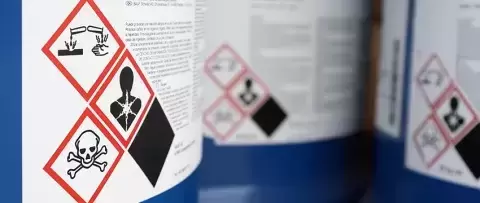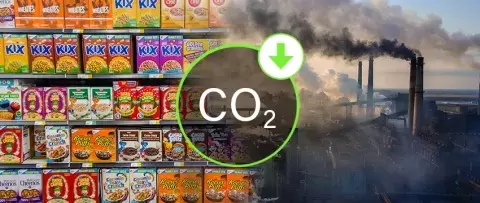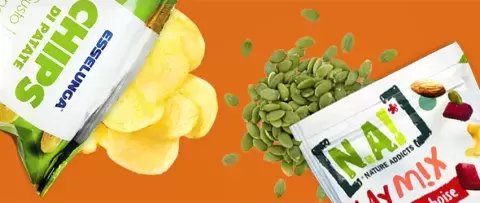Shrink Labels and Recycling: Challenges and Solutions
Enhancing Brand Appeal While Minimizing Environmental Impact
Shrink labels line store shelves everywhere, wrapping our favorite products in appealing, form-hugging designs that catch our eye. But recycling shrink labels presents a unique challenge due to their multi-layered composition. In the evolution of product packaging, shrink labels (aka shrink sleeves or shrink sleeve labels) have emerged as a popular choice for brand owners seeking to create custom-looking products. These labels offer a versatile and attractive way to showcase brand identity and product information. However, they can pose challenges during the recycling process.
There’s a growing awareness of and readiness to engage in more sustainable consumption behaviors for companies and customers alike. A 2023 survey indicated that more than 70% of respondents were willing to pay a premium for sustainably produced goods. And the shrink sleeve market is being driven by demand for convenient packaged food and beverages. Valued at $15 billion in 2022, this market is anticipated to double by 2032, reflecting a 7% CAGR.
As sustainability becomes an increasingly pressing concern, the need for recyclable materials has never been higher. It’s crucial for the packaging industry to find solutions that balance aesthetic appeal with environmental responsibility, not only in shrink sleeves but in all types of packaging.
The Evolution of Shrink Sleeves
Shrink sleeves have come a long way since their inception. Today, they’re primarily made from Polyethylene terephthalate glycol, a polyester-based film (PETG), which is a thermoplastic polyester known for its significant chemical resistance, durability, and formability. This film delivers a label that allows for greater design flexibility and product differentiation. PETG shrink sleeves can easily conform to the contours of various container shapes, creating a seamless and attractive appearance that catches the eye of consumers. Brand owners quickly recognized the benefits of shrink sleeves, which include:
- The ability to create a 360-degree design canvas
- Enhanced product visibility on crowded shelves
- Greater space for product information and branding elements
As a result, shrink sleeves have gained popularity across various industries, from beverages, dairy, and food products to cleaning supplies, consumer goods, and personal care items.
With more brands recognizing the potential of shrink sleeves, their adoption continues to rise, making them a staple in the packaging world.
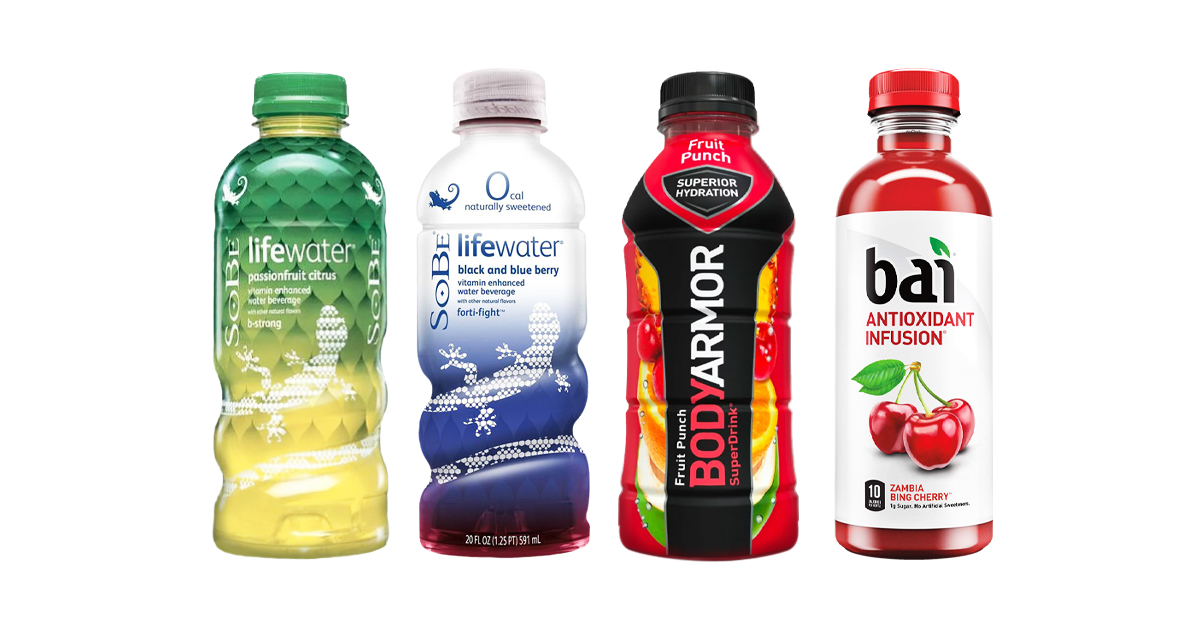
The above product images demonstrate just a few of the ways popular brands are currently utilizing shrink sleeves in the marketplace.
The Challenges of Shrink Label Recycling
Despite their numerous advantages, traditional shrink sleeves can pose significant challenges when it comes to recycling. The multi-layered composition of these labels, often consisting of different materials like PETG and polyethylene terephthalate (PET), made it difficult to separate the label material from the bottle material during the recycling process. In a standard recycling facility, bottles and labels are typically separated in afloat sink process at a recycling facility. However, the similar densities of PETG and PET caused the labels to remain with the bottle material, causing the dissimilar materials to be collected.
Moreover, when PETG and PET are mixed during the recycling process, they can cause issues downstream when the recovered materials are being used to produce new PET articles. The lower melting point of PETG causes the recycled PET to clump, making the material difficult to use when fabricating things such as new bottles. The presence of inks and adhesives used in traditional shrink sleeves further complicates the recycling process, as they can stain and discolor the recycled plastic, diminishing its value and usability.
When shrink sleeve-labeled bottles cannot be effectively recycled, they often end up in landfills or incinerators, contributing to environmental waste and greenhouse gas emissions. This not only puts a strain on our planet's resources but also undermines the efforts of consumers who diligently sort and recycle their plastic waste. As the demand for sustainable packaging solutions grows, it has become imperative for the industry to find ways to overcome the recycling hurdles associated with shrink sleeves.
LINK
Genesis makes recycling plastic films used in packaging more efficient.
See if Genesis is right for you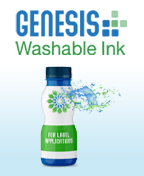
INX’s Leading Shrink Label Solution
Recognizing the urgent need to enable the recycling of PET, INX set out to develop an innovative solution. Their team of experts, with decades of experience in the printing and packaging industries, worked tirelessly to create a new line of inks specifically designed for shrink sleeve applications that would not only maintain the desired aesthetics but also facilitate easier recycling.
INX has since developed numerous specialized inks that enable the recycling of plastic films. Genesis washable inks are designed to wash off easily during the recycling process, preventing any staining or discoloration of the plastic flakes. By eliminating the contamination caused by traditional inks, INX’s solution enables the recovery of high-quality, clear plastic that can be effectively recycled and reused.
In addition to innovative ink formulations, INX also works closely with brand owners, packaging designers, and recyclers to develop best practices for the design and production of recyclable shrink sleeves. By taking a holistic approach to sustainability, INX is helping to create a circular economy for shrink sleeve packaging, where materials can be recycled and reused indefinitely.
Brand Sustainability Goals and Benefits
The impact of INX’s eco-friendly shrink sleeve inks extends far beyond the recycling facility. By enabling the successful recycling of shrink sleeve-labeled bottles, INX is helping brand owners meet sustainability goals and reduce their environmental footprint. Brands can now confidently choose shrink sleeves as a packaging option, knowing that they are not contributing to the global waste problem.
By partnering with INX and utilizing their sustainable inks, brands can also enhance their reputation and appeal to environmentally conscious consumers. In today's market, consumers are increasingly seeking out products that align with their values, including a commitment to sustainability. By adopting eco-friendly packaging solutions, such as INX’s washable shrink sleeve inks, brands can tap into this growing demand and differentiate themselves from competitors.
The benefits of sustainable shrink sleeves extend beyond consumer appeal. Many companies have set ambitious sustainability targets, such as:
- Reducing carbon footprint
- Minimizing waste
- Increasing the use of recycled materials in packaging
With INX, brands can make significant strides towards these goals and help future-proof their businesses in an increasingly environmentally conscious world.
Looking to the Future of Shrink Sleeves
As the demand for sustainable packaging solutions continues to grow, INX remains at the forefront of innovation. INX’s team of experts is constantly exploring new materials, technologies, and techniques to enhance the recyclability of shrink sleeves and other packaging components.
One area of focus for INX is the development of biodegradable and compostable inks. While recycling remains a critical component of sustainable packaging, not all materials can be easily recycled. By creating inks that can safely break down in compost facilities, INX is opening up new possibilities for brands looking to minimize their environmental impact.
DOWNLOAD
Understand the compostability and biodegradability of inks for sustainable packaging
Download Whitepaper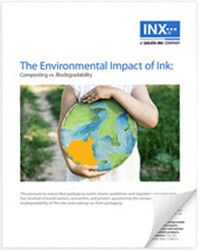
In addition to their product development efforts, INX is also actively engaged in industry collaborations and partnerships. By working closely with organizations like the Association of Plastic Recyclers (APR), INX is helping to establish standards and guidelines for recyclable shrink sleeves. These collaborations ensure that the entire packaging supply chain, from material suppliers to recyclers, is aligned in the pursuit of sustainable solutions.
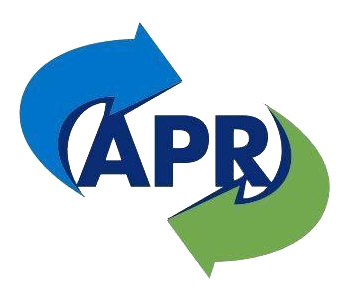
Genesis GS is a patented technology that meets the stringent APR* critical guidance for recycling of PET bottles with shrink sleeves.
*Association of Plastic RecyclersConclusion
The challenge of recycling shrink labels has long been a thorn in the side of the packaging industry. However, with INX's groundbreaking solutions, it is now possible to enjoy the benefits of shrink sleeves without compromising on sustainability. By embracing eco-friendly inks and partnering with industry leaders like INX, brand owners can enhance their products’ appeal, meet their environmental goals, and contribute to a greener future.
As consumers become increasingly aware of the environmental impact of their purchasing decisions, the demand for sustainable packaging will only continue to grow. Brands that proactively adopt recyclable shrink sleeve solutions, such as those offered by INX, will be well-positioned to meet this demand and build long-lasting relationships with eco-conscious customers.




![Shrink Labels and Recycling [Shrink labellled bottles]](/sites/default/files/2024-04/INX_shrink_blog850x360.jpg)

![Shrink Labels and Recycling [Shrink labellled bottles]](/sites/default/files/styles/large/public/2024-04/INX_shrink_blog850x360.jpg?itok=Qsx6qEqs)
